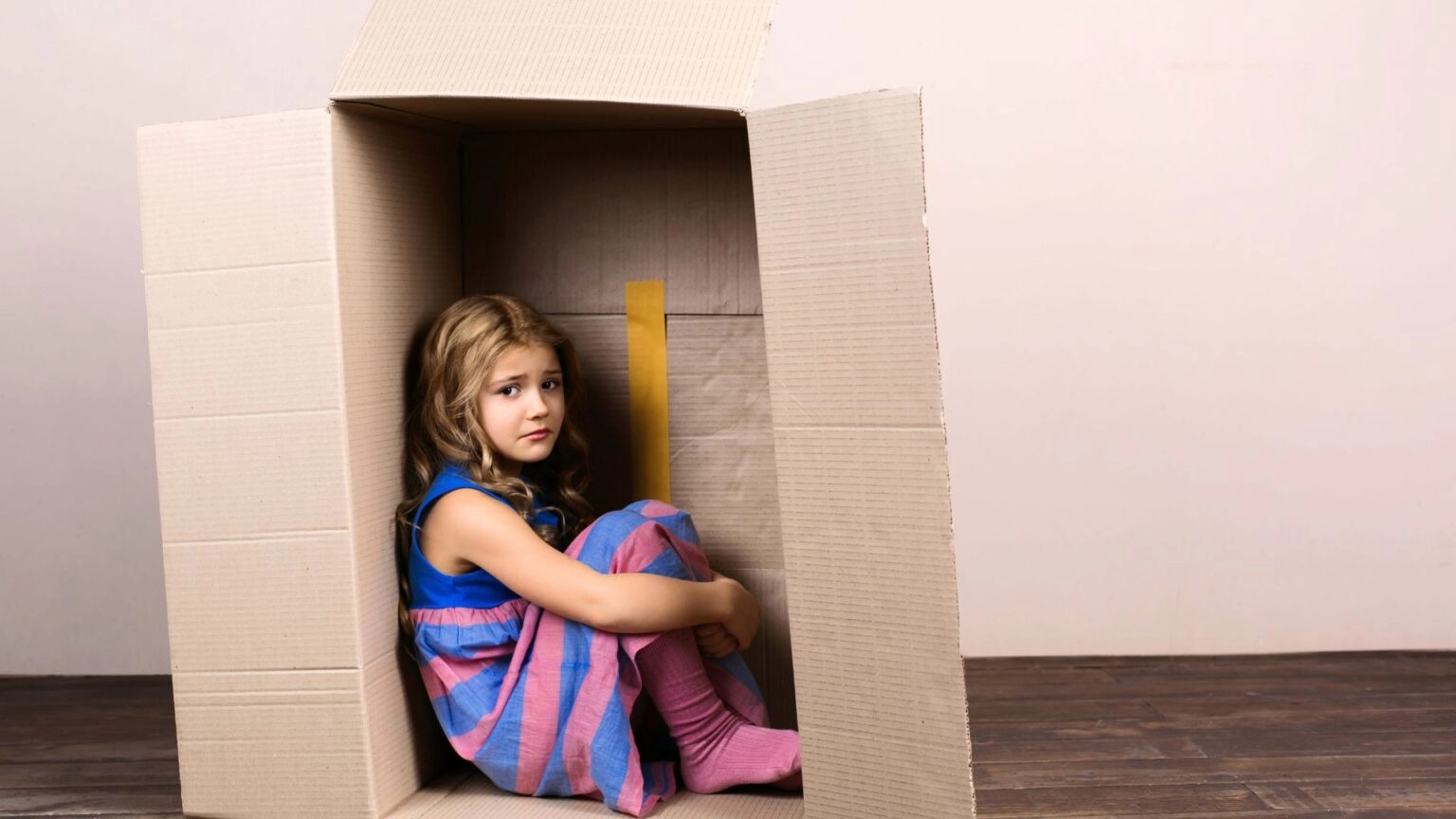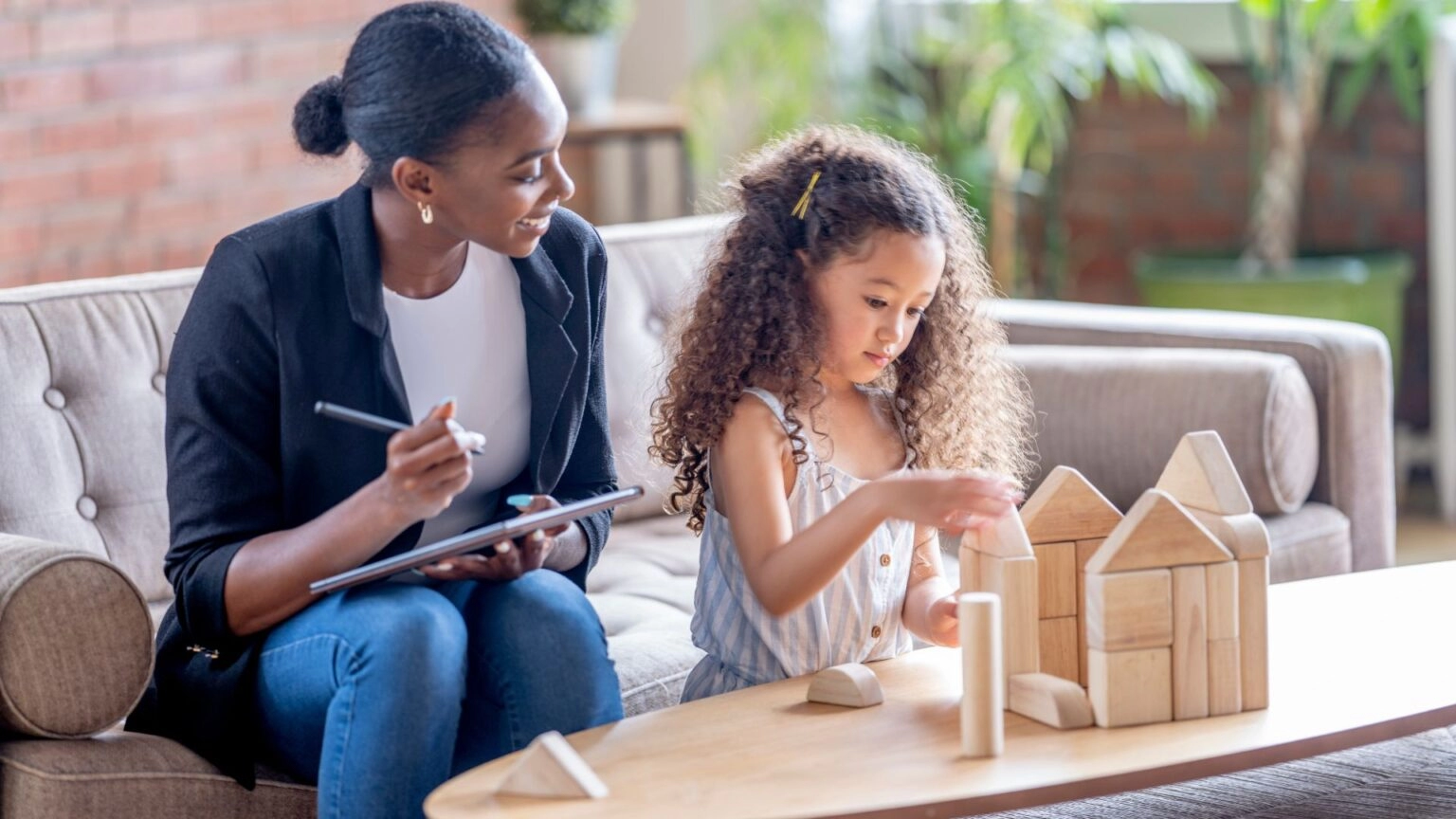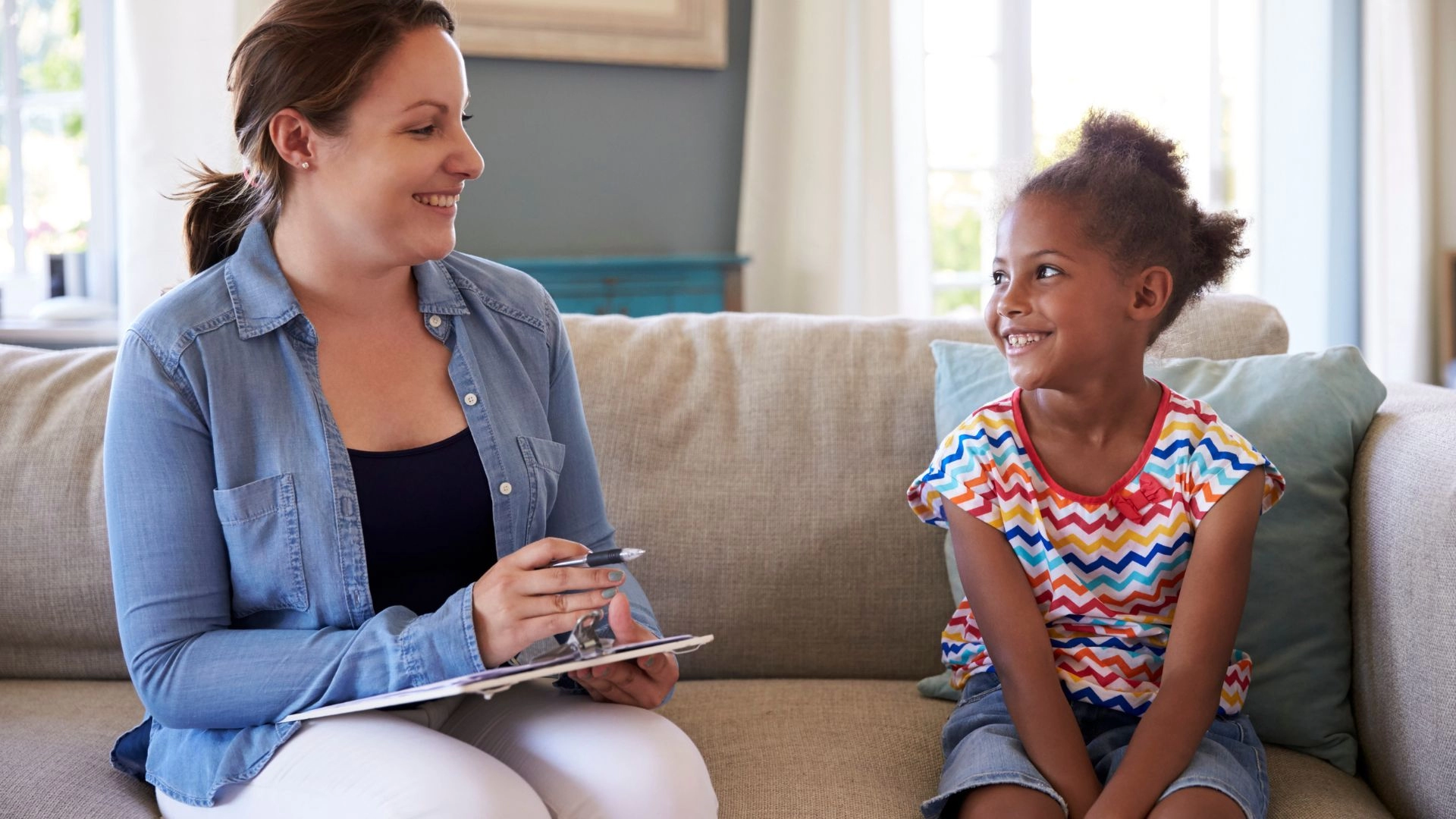We acknowledge that the effects of childhood trauma can be profound and challenging. In Oakville, Child Counselling Therapy offers a supportive environment where children can begin to heal. Using trauma-informed techniques, we help kids manage their emotions, empowering them to build resilience for the future. Our approaches include play-based therapy and cognitive-behavioral strategies, ensuring that each child receives tailored support. Involving families in the process not only strengthens bonds but also fosters open communication. We’re here to guide you and your child through this journey, so stick with us to discover more about the options available for healing.

About Child Counselling Therapy
When we consider the emotional challenges children face, understanding the role of child counselling therapy becomes crucial in helping them navigate their trauma. This form of therapy is designed to provide emotional support in families, fostering an environment where children can express their feelings and experiences safely. A child and adolescent counsellor uses trauma-informed therapy techniques to address issues like anxiety in children and behavioral concerns, ensuring that the therapeutic intervention is tailored to each child’s unique situation.
Through various methods, including parent-child therapy, we can help strengthen the bond between caregivers and children, promoting emotional resilience. These sessions are not only about addressing trauma but also about nurturing mental health awareness within families. By equipping parents with tools and strategies, we create a support system that encourages open communication and understanding.
Ultimately, child counselling therapy serves as an essential resource, guiding our children through difficult emotions and experiences. By prioritizing their mental health, we’re fostering a generation that’s better equipped to handle life’s challenges with confidence and strength. Together, we can empower our children to heal and thrive.
The Impact of Childhood Trauma on Development
Understanding child counselling therapy’s role helps us grasp how deeply childhood trauma can affect a child’s development across emotional, social, and cognitive domains. When we consider the lasting impacts of trauma, we see that it often disrupts emotional regulation, leading to heightened anxiety symptoms. This can manifest not just in the child but also create anxiety in families, affecting overall family mental health.
Child therapy and trauma therapy are essential in addressing these concerns. Through therapeutic counselling, children can learn to navigate their feelings, develop coping strategies, and rebuild their sense of safety. This psychological therapy provides a supportive environment where children can express themselves without judgment, fostering resilience.
Moreover, the skills gained through child counselling therapy can greatly enhance social interactions, helping children form healthy relationships. As we engage in this process, we must remember that healing is a journey, and the effects of trauma can be complex. By prioritizing mental health, we create a foundation for healthier emotional and social development, ultimately leading to a brighter future for our children. Together, we can support their journey toward healing and growth.

Effective Child Therapy Techniques for Trauma Recovery
Effective child therapy techniques for trauma recovery offer a pathway for children to heal and regain control over their emotions and experiences. In our practice, we focus on various methods that foster emotional well-being and resilience. One crucial aspect is utilizing an anxiety symptoms checklist to identify specific challenges a child might face. This allows us to tailor our child counselling therapy approach to their unique needs.
We often incorporate coping mechanisms that empower children to manage their feelings effectively. For instance, grounding techniques can help them stay present during overwhelming moments, while relaxation techniques promote calmness and reduce anxiety. Additionally, we emphasize stress management strategies that children can use both in and out of therapy sessions.
Psychotherapy for anxiety plays an important role in helping children understand their emotions and develop healthier responses to stressors. Working with a licensed counsellor provides a safe space for children to express themselves and explore their experiences. By implementing these effective techniques, we’re not just addressing trauma; we’re nurturing their ability to thrive emotionally, ensuring a brighter future for every child we support in their journey of recovery.
Incorporating Trauma-Informed Approaches in Child Counselling
How can we create a safe and supportive environment for children in counselling by incorporating trauma-informed approaches? As mental health professionals, we recognize that children who have experienced trauma may struggle with anxiety, emotional regulation, and trust. By adopting trauma-informed approaches, we cultivate a space where children feel secure and valued.
We begin by using calming techniques that help children manage their emotions, allowing them to express themselves freely. As emotional resilience specialists, we focus on building coping skills that empower children, enhancing their ability to navigate challenges. Additionally, we acknowledge the importance of involving parents in the process, providing support for parents to help them comprehend their child’s needs.
In our child counselling therapy sessions, we also employ holistic therapy approaches that consider the child’s emotional, physical, and social well-being. When crisis intervention therapy is necessary, we guarantee that the child feels understood and supported. Finally, we address therapy for family issues, fostering healthy communication and connection within the family unit. By integrating these trauma-informed approaches, we guide children towards healing and resilience, paving the way for brighter futures.
Healing Childhood Trauma Through Play-Based Therapy
Incorporating play-based therapy into our approach allows children to express and process their trauma in a natural and engaging way, fostering healing through creativity and imagination. This method offers a safe space for children to explore their feelings, helping them articulate their experiences without the pressure of traditional talk therapy.
Through play, we can facilitate emotional therapy that supports trauma recovery while enhancing anxiety management. Children can simulate scenarios, allowing them to confront fears and practice anxiety coping strategies in a controlled environment. With guidance from trained professionals, we can help children navigate their emotions, leading to improved mental wellness.
Parental guidance plays an essential role in this process. By collaborating with parents and offering resources like anxiety support groups, we can guarantee a holistic approach to healing. We aim to empower families, equipping them with tools to support their child’s journey toward recovery.
Ultimately, play-based therapy not only addresses healing childhood trauma but also strengthens the parent-child bond, creating a foundation for ongoing emotional resilience. Together, we can foster a nurturing environment where children can thrive and work toward a brighter future.

Providing Emotional Support and Regulation for Children
Many children struggle to articulate their emotions, so providing them with consistent emotional support and regulation strategies is crucial for their overall well-being. In our child counselling therapy sessions, we focus on creating a safe environment where children can express their feelings without fear of judgment. This emotional support helps them navigate anxiety triggers and enhances their ability to cope with stress.
We often incorporate calming exercises into our sessions, guiding children through methods that promote relaxation and emotional regulation. By teaching these skills, we empower them to manage their emotions effectively, reducing anxiety not only in children but also in their families, as they learn to communicate better within their family dynamics.
Additionally, for those dealing with grief or trauma, our grief counselling and trauma therapy approaches provide specialized support tailored to their unique experiences. We recognize that emotional regulation is a crucial component of anxiety therapy sessions, equipping children with tools to cope with challenging feelings. Together, we aim to foster resilience and emotional intelligence, laying a solid foundation for their future mental health and well-being.
Using Cognitive-Behavioral Therapy to Treat Childhood Trauma
Building upon the emotional support and regulation strategies we’ve established, we can effectively utilize Cognitive-Behavioral Therapy (CBT) to address the complex impacts of childhood trauma. In our child counselling therapy sessions in Oakville, Ontario, CBT serves as an essential tool for helping children process their experiences and develop healthier thought patterns.
This approach focuses on identifying negative thoughts and behaviors linked to trauma, allowing us to guide children through anxiety treatment tailored to their needs. We’ve seen how CBT can greatly benefit those struggling with anxiety disorders in teens, providing effective anxiety reduction techniques that empower them to regain control over their emotions.
Through structured therapy for anxiety, children learn to challenge their fears and develop coping strategies that can enhance their overall child mental health care. It’s important for us to foster an environment where they feel safe to express their feelings while exploring the connections between their thoughts, emotions, and behaviors. By employing CBT, we’re not just treating symptoms; we’re helping children build resilience and a brighter future. Together, we can create a path toward healing and recovery from trauma.
Healing Trauma Through Parent-Child Therapy
Healing trauma often requires a collaborative approach, and parent-child therapy can create a safe space for families to reconnect and support each other through the healing journey. By participating in family therapy sessions, we can address the impact of trauma on both children and parents, fostering understanding and empathy. This therapeutic setting encourages open communication, allowing us to explore emotions and experiences that may have been difficult to share.
Through child counselling therapy, we can implement effective parenting strategies that promote family emotional well-being. By learning together, we can strengthen family relationship building, ensuring that both children and parents feel supported. This is especially important for adolescent mental health, as teens often struggle with their feelings in isolation.
Engaging in couples and family therapy not only aids in healing trauma but also enhances our family support programs, helping us develop healthier dynamics. As we work together, we’ll build resilience and emotional intelligence, equipping our children with the tools they need to navigate life’s challenges. Ultimately, healing trauma through parent-child therapy fosters deeper connections and empowers families to thrive in their emotional journeys.
Building Resilience in Children with Group Therapy
When children come together in group therapy, they not only share their experiences but also learn to support one another, fostering resilience in a nurturing environment. Through child counselling therapy, we help them understand that they’re not alone in facing their challenges. Each session becomes a safe space where they can express themselves, explore their feelings, and learn essential communication skills.
Utilizing family therapy techniques, we encourage open dialogue, which strengthens family wellness and enhances their coping strategies. As we guide them through trauma recovery, we incorporate anxiety therapy that focuses on stress relief and anxiety relief. The shared experiences in group therapy create a bond, helping children realize they can lean on each other for support.
Resilience building becomes a natural outcome of these interactions. By witnessing peers overcome struggles, they develop a sense of hope and empowerment. Our aim is to equip them with the tools they need to navigate life’s challenges, ensuring they emerge from our sessions more confident and capable. Together, we’re nurturing a generation that’s not only resilient but also compassionate and understanding towards others.
Managing Anxiety and Depression in Children Post-Trauma
Managing anxiety and depression in children post-trauma requires a compassionate approach that acknowledges their unique experiences and emotions. In our practice, we recognize that trauma can lead to various anxiety disorders, considerably impacting a child’s mental health. Through child counselling therapy, we develop tailored anxiety treatment plans that incorporate effective anxiety therapy techniques.
Exposure therapy is one method we often use, helping children gradually face their fears in a safe environment. This approach fosters trauma recovery, allowing them to regain control over their emotions. We also emphasize the importance of self-care for anxiety, guiding children in relaxation exercises that promote calmness and resilience.
It’s essential we involve caregivers in this process, equipping them with tools to support their children at home. By fostering open communication, we can help children express their feelings about anxiety and depression, reducing stigma and encouraging healing. Together, we can create a nurturing environment where children feel safe to share their experiences.
With proper mental health care, we can guide children through their healing journey, helping them build coping strategies that support long-term emotional well-being.
The Importance of Early Intervention in Treating Childhood Trauma
Early intervention is essential in addressing childhood trauma, as it greatly enhances a child’s ability to process their experiences and fosters resilience for the future. When we engage in child counselling therapy early on, we provide children with the support they need to navigate their feelings and experiences more effectively. An anxiety therapist can help children articulate their emotions, making it easier for them to understand their trauma and its impact.
By addressing childhood trauma through early intervention, we also strengthen relationship dynamics within families. Holistic family therapy offers an all-encompassing approach, allowing parents and guardians to participate actively in the healing process. This involvement helps create a supportive environment where children feel safe and understood.
Moreover, working with a psychotherapist early can prevent the development of long-term anxiety and other mental health issues. Anxiety counselling can be tailored to the child’s unique needs, ensuring they receive the most effective support. Ultimately, prioritizing early intervention not only aids in healing but also lays the groundwork for healthier emotional development, enabling children to thrive despite their past experiences. Together, we can make a meaningful difference in their lives.
Creative Interventions and Art Therapy for Children
These creative interventions can be integrated into child counselling alongside cognitive-behavioral therapy and family systems therapy, creating a holistic approach to healing. By engaging in artistic activities, children often feel safer and more willing to share their thoughts, which can lead to meaningful insights.
Additionally, we encourage parents to participate in parenting coaching, fostering a supportive environment at home. This collaboration can enhance the therapeutic process, allowing families to better understand the child’s needs. Ultimately, art therapy serves as a bridge for communication, enabling children to navigate their trauma and build resilience in a nurturing setting. Together, we can help them find their voice and set out on a path toward healing.
School Counseling: Supporting Children Affected by Trauma
School counselors play an essential role in supporting children affected by trauma, helping them navigate their emotions and fostering a sense of safety within the school environment. Through school counseling, we create a space where kids can express their feelings and develop anxiety resilience, crucial for coping with their circumstances.
Understanding trauma is fundamental, as it often intertwines with family dynamics. We work collaboratively with families, offering parental counseling and family communication therapy to enhance conflict resolution in families. This holistic approach not only aids in the child’s healing process but also strengthens family bonds, contributing to overall family health.
In cases where an anxiety diagnosis is present, we provide targeted support that includes coping strategies and resources tailored to each child’s unique needs. Our goal is to empower children, helping them build skills that promote emotional well-being and resilience.
Family Therapy: A Holistic Approach to Trauma Recovery
Family therapy provides an extensive approach to trauma recovery, recognizing that healing often involves not just the individual but the entire family unit. By engaging in family-focused therapy, we can address the complexities of trauma together, fostering a supportive environment where everyone feels heard and valued.
Through integrative family therapy, we explore the dynamics that contribute to family mental health care, allowing us to identify patterns and improve relationships. Our marriage and family therapists offer specialized family counselling services that focus on enhancing communication and understanding, which are essential in managing family conflict.
As we work with a relationship counsellor, we can uncover the underlying issues that may affect our loved ones and develop strategies for healthier interactions. This holistic approach not only supports trauma recovery but strengthens our connections, promoting resilience within the family structure.
Utilizing family guidance services, we can empower each member to heal while building a united front against the challenges we face. Together, we can initiate this transformative journey, ensuring that everyone feels supported and equipped to thrive in their recovery process.
Reach Out to Our Child Therapist for Specialized Trauma Care in Oakville
If you’re seeking compassionate support for your child’s trauma, our specialized child therapist in Oakville is here to help guide them on their healing journey. We recognize that trauma can deeply affect children’s emotional regulation and overall well-being. That’s why we offer tailored trauma care to address their unique needs.
Through family-centered counselling, we involve the entire family in the healing process, helping everyone understand and manage any anxiety triggers. Our cognitive-behavioral therapist utilizes effective strategies to provide therapy for stress, enabling your child to process their experiences in a safe environment.
At our Child Counselling Therapy Center in Oakville, we focus on nervous system regulation, providing your child with the tools they need to cope and thrive. Together, we’ll develop an anxiety triggers list to identify specific stressors, making it easier to manage and navigate challenging situations.
Our approach combines empathy with professionalism, ensuring that your child feels safe and supported throughout the process. We believe every child deserves the opportunity to heal and flourish, and we’re committed to assisting you every step of the way. Let’s take the first step together towards a brighter, healthier future for your child in Oakville.

About Town of Oakville
Nestled along the shores of Lake Ontario, the Town of Oakville offers a vibrant community where families can find not only support but also numerous resources to help their children thrive. At 123 ABC Road, we have a dedicated team of family therapists who specialize in various aspects of emotional well-being, including anxiety prevention and fear management.
In Oakville, Ontario, we recognize that child dynamics can be complex. That’s why we provide tailored services such as sibling therapy and couples therapy, ensuring every child’s voice is heard during the family therapy process. Our commitment to child healing extends.
We believe that every child deserves a safe and nurturing environment to grow, and we’re here to help foster that. By engaging in our specialized child counselling therapy for trauma, families can access the tools needed to support their children through difficult times. Together, we can create a brighter future where our children feel empowered and resilient. In Oakville, we’re not just a community; we’re a family dedicated to each other’s well-being.

- Dundas Street (Highway 5)
- Trafalgar Road
- Lakeshore Road
- Speers Road
- Third Line
- Upper Middle Road
- Bronte Road
- Royal Windsor Drive
- Winston Churchill Boulevard
- Ford Drive
- Dorval Drive
- Rebecca Street
- Great Lakes Boulevard
- 16 Mile Drive
- QEW (Queen Elizabeth Way)
- North Service Road
- South Service Road
- Maple Grove Drive
- Burnhamthorpe Road
- Glenashton Drive
- West Oakville
- Falgarwood
- Kerr Village
- Clearview
- West Oak Trails
- Bronte
- Palermo
- Ennisclare Park
- Glen Abbey
- Uptown Core
- Oakville East L6K
- Oakville South L6L
- Oakville North L6H
- Oakville West L6M
Frequently Asked Questions
What Age Groups Benefit Most From Child Counselling Therapy for Trauma?
When we think about the age groups that benefit most from child counselling therapy for trauma, we realize that both younger children and adolescents often show significant improvements. Younger kids can develop coping skills early on, while teens may find a safe space to process complex emotions. It’s crucial to remember that each child’s experience is unique, and tailored support can make a profound difference at any age. We’re here to help every step of the way.
How Can Parents Support Their Child During Therapy Sessions?
When it comes to supporting our child during therapy sessions, we can create a safe and open environment. Let’s encourage them to express their feelings and validate their experiences. We should also attend sessions when possible, showing our commitment and understanding. It’s crucial to communicate with the therapist, sharing insights that can enhance our child’s experience. By being patient and present, we help our child feel more secure and valued throughout their journey.
What Signs Indicate My Child Needs Trauma Counselling?
When we notice significant changes in our child’s behavior, such as increased anxiety, withdrawal from activities they once enjoyed, or trouble sleeping, it may indicate they need trauma counseling. Other signs include emotional outbursts, difficulty concentrating, or expressing fears that seem disproportionate. It’s important to trust our instincts and seek help if we’re concerned. Supporting our child through this process can make a significant difference in their healing journey.
Are Therapy Sessions Confidential for Children?
When it comes to therapy sessions for children, confidentiality is essential. We recognize that this can be a concern for parents. Typically, what a child shares during these sessions remains private, fostering a safe space for them to express their feelings. However, there are exceptions, especially if there’s a risk of harm. We’re here to support both children and parents through this process, ensuring everyone feels secure and understood.
How Long Does Child Counselling Therapy Typically Last?
When it comes to child counselling therapy, we’ve found that the duration can vary widely. Typically, sessions last anywhere from a few weeks to several months, depending on the child’s needs and the issues being addressed. We’re here to support each child’s unique journey, ensuring they feel safe and understood. It’s important to remember that everyone’s progress is different, and we’ll work together to create a comfortable pace for healing.
